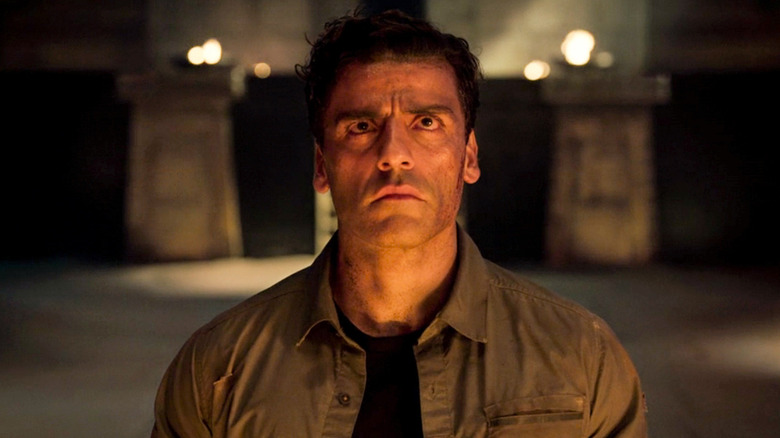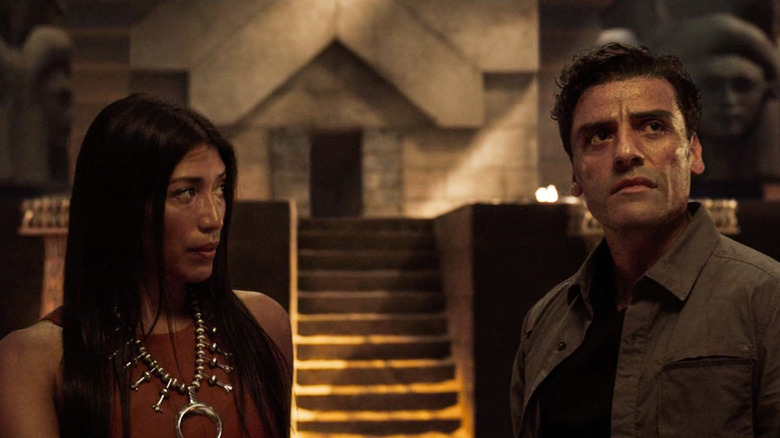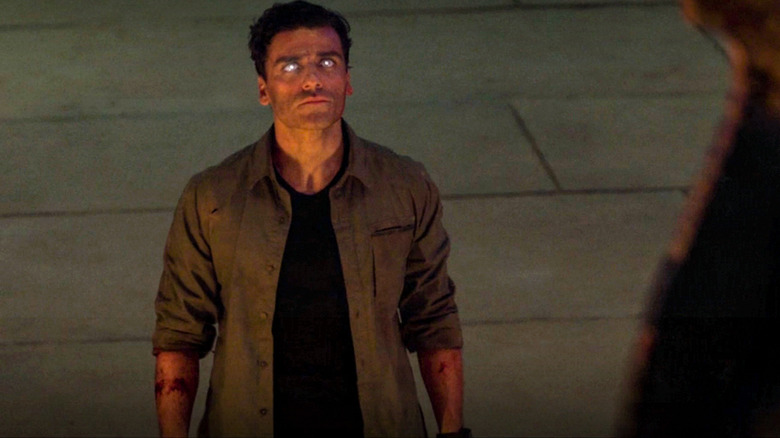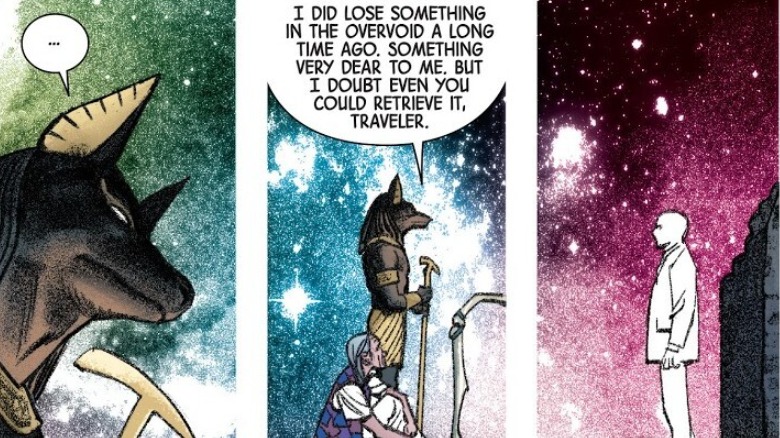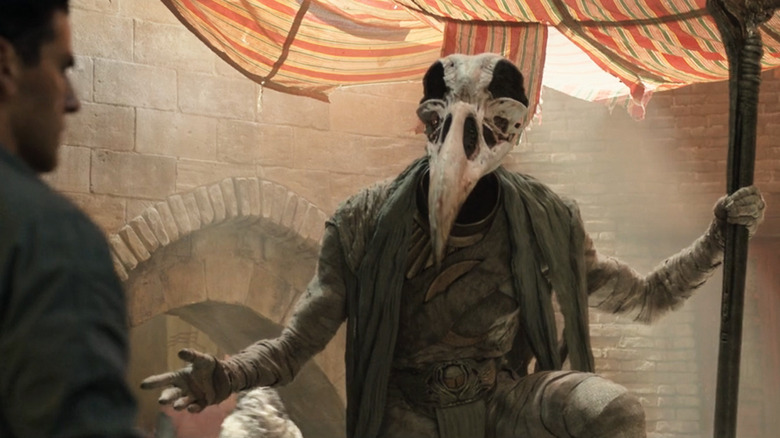The Overvoid In Moon Knight Explained
We have officially hit the halfway mark of "Moon Knight," with the third episode of the Disney+ series now streaming. This chapter of Oscar Isaac's journey through the Marvel Cinematic Universe took him (as Steven Grant) far from home in an attempt to stop Ethan Hawke's Arthur Harrow from releasing the power of Ammit. Along the way, an interesting reference to some lore from the pages of Marvel Comics was made. As far as the MCU goes, it actually goes a long way in explaining why these Egyptian gods have had less direct influence over the lives of humans over the years.
Warning: spoilers ahead for "Moon Knight." Proceed with caution.
The gods in the Overvoid
The episode, entitled "The Friendly Type," sees Marc and Khonshu becoming desperate to stop Arthur, who has the scarab that will reveal the location of Ammit. As an effort to stop Arthur, Khonshu calls a meeting of the gods inside the Great Pyramid of Giza. The gods all show up to meet Marc/Steven using their human avatars. A trial of sorts ensues, in which Arthur is called in to defend himself. This doesn't really go according to plan for Khonshu, as the council of the gods does not deem that Arthur had done anything that merits punishment. Instead, they're more concerned that the moon god's avatar has multiple personalities and isn't right in the head.
Things get heated and the gods explain that they no longer intend to interfere directly in the affairs of humans, and they haven't for some time. Instead, they use the avatars to observe, whereas Khonshu interferes a bit more directly (and violently). This causes a bit of an outburst from Khonshu, who is possessing Marc to make his case, and he says the following:
"Avatars are not enough! We need the might of gods. Return from the opulence of the Overvoid before you lose this realm."
The Overvoid, it seems, is where the gods themselves have actually been, with the avatars roaming the Earth and simply observing. This godly place, as it turns out, is ripped directly from the pages of the Marvel Comics and has gone by several names across multiple decades.
The comic book history
In the pages of Marvel Comics, this was the home dimension of the Egyptian gods known as the Ennead, housing the likes of Osiris, Isis, and Horus. And wouldn't you know it, those names should sound familiar to those who watched this episode. What was dubbed the Overvoid in "Moon Knight" episode 3 was originally called the Celestial Heliopolis and made its debut in the pages of "Thor" #240 back in 1975. Since then, it has appeared several times over the years. In this case, most notably in 2016's "Moon Knight" #10, the eighth volume of the character's solo title. This is where it is first referred to by the name we hear in this episode.
And there we have it! One interesting thing to note here is that the introduction of the Overvoid in the MCU does help explain a question some viewers might have had: Why haven't these gods interfered in major events we've witnessed over the years? Shouldn't they have been involved in Avengers-level threats, for example? Well, they have opted not to interfere with human events in favor of existing as gods in the Overvoid, which clears that all right up (not unlike the Eternals' decision to linger among humanity without interfering in their affairs). That explanation isn't great, but it's at least enough to suspend disbelief within the confines of a superhero show about a mercenary with multiple personalities possessed by an ancient, disgraced god.
An unintended bit of Marvel and DC crossover
One last interesting tidbit regarding the Overvoid is that this may have been an unintentional crossover with the DC universe, at least in name. As is often the case, Marvel and DC have counterparts that roughly equal one another in their respective universes. Thanos and Darkseid. Deadpool and Deathstroke. In this case, DC also has something that is sometimes called the Overvoid, or Monitor-Mind The Overvoid, aka The Void, sometimes The Overmonitor, and The Primal Monitor.
This is said to be the "ultimate source of all creation" within DC Comics lore, so in that way, it is remarkably different than the Overvoid as we know it in the MCU. It's still godly, but in a more ethereal way, as Superman once described it as "some kind of abstract infinite intelligence." This was almost certainly unintended, but the fact that this reference just might have made DC fans' ears perk up adds another layer to the whole thing.
"Moon Knight" is now streaming on Disney+ with three more episodes left to debut.
